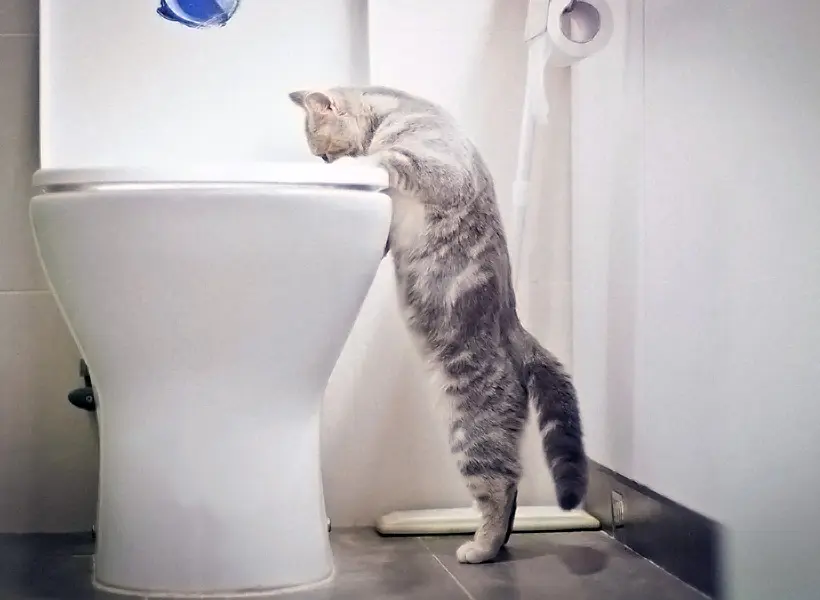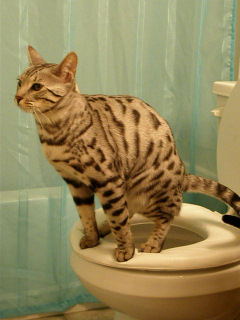Avoid Flush Cat Poop Down Your Toilet - Protect Your Plumbing Infrastructure
Avoid Flush Cat Poop Down Your Toilet - Protect Your Plumbing Infrastructure
Blog Article
Presented here in the next paragraph you'll find a bunch of incredibly good additional info pertaining to Can You Flush Cat Poop Down The Toilet?.

Intro
As pet cat owners, it's necessary to be mindful of exactly how we deal with our feline close friends' waste. While it might seem hassle-free to flush feline poop down the bathroom, this technique can have damaging consequences for both the environment and human wellness.
Ecological Impact
Purging cat poop presents hazardous microorganisms and bloodsuckers into the water system, presenting a significant threat to aquatic ecological communities. These impurities can negatively influence marine life and concession water quality.
Health and wellness Risks
In addition to environmental concerns, flushing pet cat waste can also pose health threats to human beings. Pet cat feces might have Toxoplasma gondii, a bloodsucker that can trigger toxoplasmosis-- a possibly severe illness, particularly for pregnant ladies and people with weakened immune systems.
Alternatives to Flushing
Thankfully, there are much safer and a lot more liable means to dispose of pet cat poop. Take into consideration the adhering to options:
1. Scoop and Dispose in Trash
The most common method of throwing away feline poop is to scoop it into a biodegradable bag and toss it in the garbage. Be sure to use a committed litter scoop and dispose of the waste without delay.
2. Use Biodegradable Litter
Opt for naturally degradable cat clutter made from products such as corn or wheat. These trashes are environmentally friendly and can be securely gotten rid of in the garbage.
3. Bury in the Yard
If you have a lawn, think about burying cat waste in a designated location away from veggie yards and water resources. Make certain to dig deep sufficient to stop contamination of groundwater.
4. Mount a Pet Waste Disposal System
Buy a pet dog garbage disposal system specifically developed for pet cat waste. These systems use enzymes to break down the waste, minimizing smell and environmental effect.
Conclusion
Accountable pet possession prolongs beyond providing food and shelter-- it additionally involves proper waste administration. By refraining from flushing pet cat poop down the toilet and choosing different disposal approaches, we can decrease our environmental footprint and secure human health and wellness.
Why You Should Never Flush Cat Poop Down the Toilet
A rose by any other name might smell as sweet, but not all poop is created equal. Toilets, and our sewage systems, are designed for human excrement, not animal waste. It might seem like it couldn’t hurt to toss cat feces into the loo, but it’s not a good idea to flush cat poop in the toilet.
First and foremost, assuming your cat uses a litter box, any waste is going to have litter on it. And even the smallest amount of litter can wreak havoc on plumbing.
Over time, small amounts build up, filling up your septic system. Most litter sold today is clumping; it is made from a type of clay that hardens when it gets wet. Ever tried to scrape old clumps from the bottom of a litter box? You know just how cement-hard it can get!
Now imagine just a small clump of that stuck in your pipes. A simple de-clogger like Drano isn’t going to cut it. And that means it’s going to cost you big time to fix it.
Parasitic Contamination
Believe it or not, your healthy kitty may be harboring a nasty parasite. Only cats excrete Toxoplasma in their feces. Yet it rarely causes serious health issues in the cats that are infected. Most people will be fine too if infected. Only pregnant women and people with compromised immune systems are at risk. (If you’ve ever heard how women who are expecting are excused from litter cleaning duty, Toxoplasma is why.)
But other animals may have a problem if infected with the parasite. And human water treatment systems aren’t designed to handle it. As a result, the systems don’t remove the parasite before discharging wastewater into local waterways. Fish, shellfish, and other marine life — otters in particular — are susceptible to toxoplasma. If exposed, most will end up with brain damage and many will die.
Depending on the species of fish, they may end up on someone’s fish hook and, ultimately on someone’s dinner plate. If that someone has a chronic illness, they’re at risk.
Skip the Toilet Training
We know there are folks out there who like to toilet train their cats. And we give them props, it takes a lot of work. But thanks to the toxoplasma, it’s not a good idea.

I'm certainly very occupied with Don’t flush cat feces down the toilet and I hope you enjoyed reading my entry. Sharing is good. Helping people is fun. Thank you for your time. Kindly come by our website back soon.
Book-Now Report this page